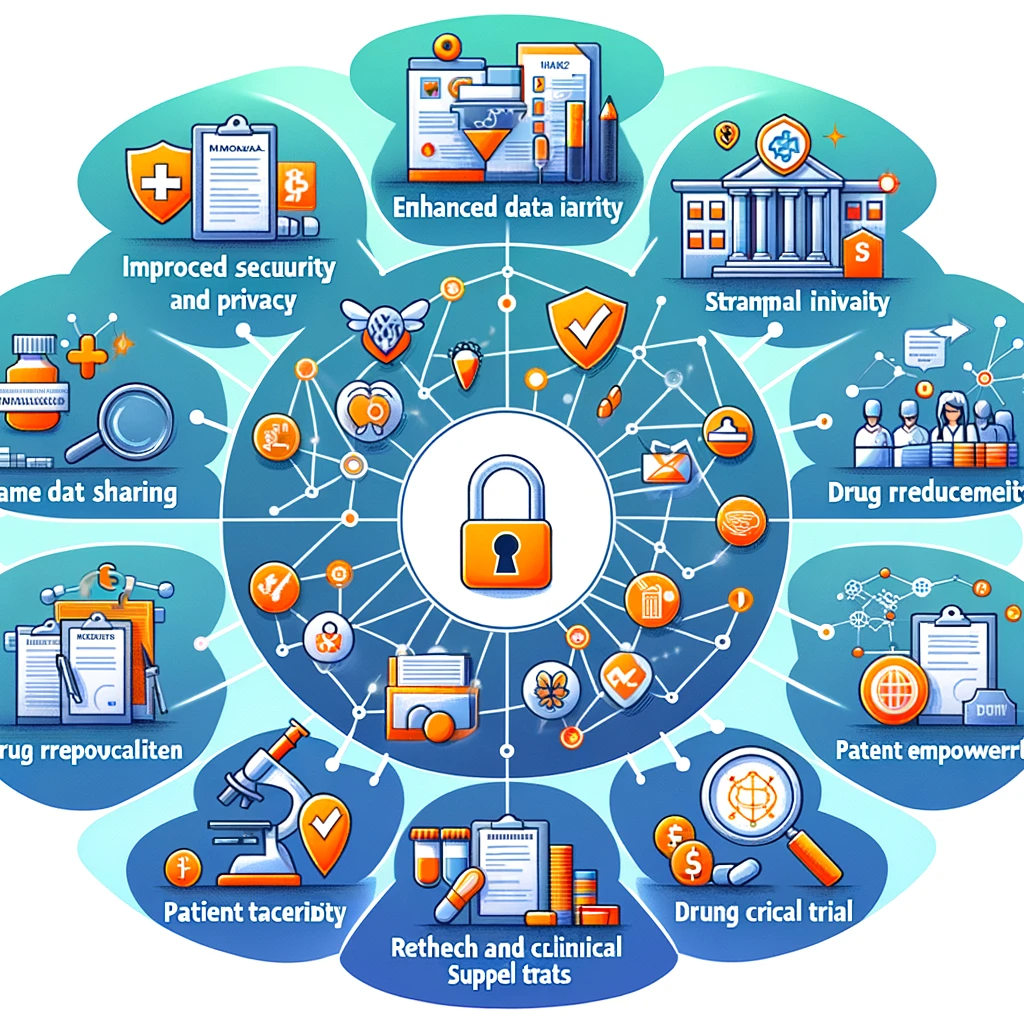Blockchain in Healthcare: Transforming Patient Care and Data Management
Blockchain technology, originally developed as the backbone for cryptocurrencies, has promising applications in healthcare. Here is a Figure 1 that illustrates the various benefits of blockchain technology in healthcare, as discussed in the blog content. Each section of the diagram represents a specific benefit, making it easy to understand how blockchain can positively impact the healthcare industry.

Here’s a short exploration of its potential benefits:
- Improved Data Security and Privacy: One of the most significant advantages of blockchain in healthcare is enhanced data security. Blockchain’s decentralized nature means that health data is not stored in a single location, reducing the risk of data breaches. Each transaction on the blockchain is encrypted, ensuring patient data remains confidential.
- Enhanced Data Integrity: Blockchain provides an immutable ledger, meaning once data is recorded, it cannot be altered. This feature is crucial for medical records, where data accuracy is paramount. It ensures a tamper-proof record of patient history, medication, and treatments.
- Streamlined Data Sharing: Interoperability is a big challenge in healthcare. Blockchain can facilitate secure and efficient data sharing between various stakeholders, including hospitals, clinics, and insurance companies. This leads to better coordination of patient care and potentially improved health outcomes.
- Fraud Reduction: Healthcare fraud is a significant issue, costing billions annually. Blockchain’s transparency and traceability can help reduce fraud in billing and insurance claims, as every transaction is recorded and easily verifiable.
- Drug Traceability: Counterfeit drugs are a global problem. Blockchain can track the production, shipment, and delivery of pharmaceuticals, ensuring the authenticity of drugs and enhancing patient safety.
- Patient Empowerment: Blockchain can give patients control over their own health data. Patients can decide who gets access to their data, which could lead to increased trust and engagement in their healthcare.
- Research and Clinical Trials: Blockchain can improve the management of clinical trials. Data integrity is vital for trial results, and blockchain can ensure the reliability of the data collected. Additionally, it can streamline participant consent and data sharing with research institutions.
In conclusion, while blockchain in healthcare is still in its infancy, its potential benefits are vast. It offers a new paradigm for data security, integrity, and sharing, which could transform the healthcare industry, leading to more efficient, transparent, and patient-centered care.